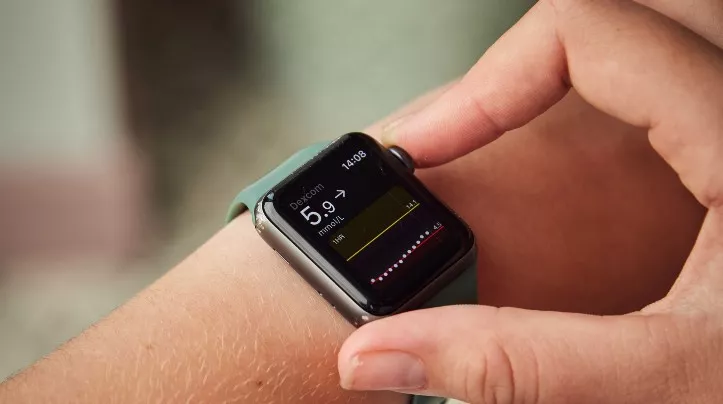
In this series, we’re bringing the exciting research that we’re funding from the Lab to Life.
Recently, we chatted to Dr Katie Hesketh (below), an Assistant Professor in Exercise Prescription at the University of Birmingham.
Dr Hesketh has always been passionate about health and exercise science, so it’s no surprise she chose to focus her research and teaching career in this area. During her PhD, she became fascinated by the role that both physical activity and exercise can play in helping to manage chronic conditions - specifically diabetes.
“I was particularly inspired by the potential of exercise as a tool to help improve the lives of people with both type 1 diabetes and type 2 diabetes. This is what led me down my current path, which focuses on making physical activity more accessible to people to help them manage their blood sugars better and improve their overall health.”
Dr Hesketh told us that the biggest motivator for her research is the difference that exercise can make to people’s lives, like benefits to mental health and making new friends. Most of the activities her research recommends are social and inclusive, like walking groups where people can chat.
“I can imagine that diabetes can be quite isolating at times. People need to make connections with others who are going through a similar situation, and exercise is just one of those things that can facilitate those types of conversations nicely.”
Making exercise bite-size
Not everyone enjoys long, intense exercise sessions, especially as they can cause anxiety about low blood sugar levels. There can be other barriers too, like not having enough time or just not enjoying a certain style of exercise.
But Dr Hesketh’s research is centred on a concept called ‘activity snacking’. Instead of doing big blocks of exercise, activity snacking encourages short bursts of movement throughout the day to break up sitting time. It’s as simple as getting up out of your chair and moving around for a few minutes.
Activity snacking has already been shown to be beneficial for people living with type 2 diabetes. With our funding, Dr Hesketh is finding out whether these smaller, more manageable activity ‘snacks’ can also improve blood sugar levels and the overall health of people with type 1 diabetes.
“There are different ways in which we can use exercise. In this sense, exercise is like a tool in the toolbox. It doesn't need to be a one-size-fits-all approach. We want to provide very simple, practical real-world strategies that can be easily adopted into people’s varied and very busy daily lives.”
Her study is testing the impact of doing activity snacking every day for a month. Each day, participants take a three-minute movement break every half an hour between 9am and 5pm. Dr Hesketh is also interviewing participants to see what they think of activity snacking. Was it easy to do? Did they enjoy it? And if they didn't, why?
Empowering people to manage their diabetes sustainably
If Dr Hesketh’s research shows that short and regular activity breaks can improve blood sugar levels, she hopes it will also reduce the burden of managing diabetes and improve people's quality of life in the long run.
“People with type 1 diabetes must already think about so many things each day. We don't want to add to the burden, but we do want to help them to manage their condition.
"That’s why we designed the research the way that we did - we don't want exercise to feel like a big onerous task…I hope that activity snacking will empower people with type 1 to manage their health in a way that feels achievable and sustainable in the future.”
Dr Hesketh told us one of her challenges has been finding people to take part in her study. But working with people who are passionate about advancing diabetes research, makes it all worthwhile.
Making a splash
In her spare time, Dr Hesketh plays water polo for Great Britain.
“The water polo community is very small compared to other sports like athletics - everyone knows everyone! In 2024, I competed in Europeans in Eindhoven, Worlds in Doha, and the World Cup in Istanbul.
“Exercise has provided me with so many benefits - both mentally and socially. I get my buzz from exercise, and I want to share this with other people. I know the right kind of exercise can have a huge impact on those living with chronic conditions.”
